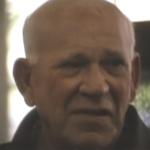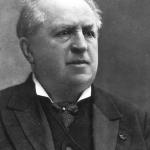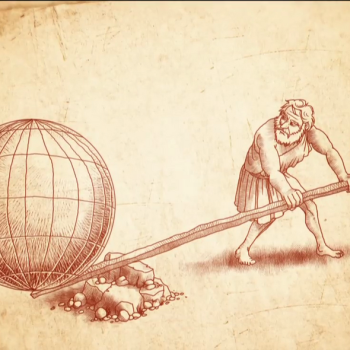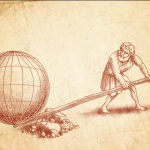Why political polls are inaccurate; big cases in the new Supreme Court term; and academics are joining the autoworkers’ union.
Why Political Polls Are Inaccurate
In 2016, the polls were showing that Hillary Clinton would beat Donald Trump, but that did not happen. In the 2022 midterm elections, the polls predicted a big Republican victory, but that did not happen either. Though both parties are still fixated on polls, they are often inaccurate when it comes to predicting who will win an election. Why is that?
We finally have what has to be a big part of the answer. Patrick Flynn reports in Unherd about some important research from FocalData.
Keep in mind that not all Americans vote. In the last presidential election of 2020, only 66% of Americans cast their ballots, which was the largest turnout since 1900, even though one-third of U.S. citizens did not participate. So pollsters routinely ask their respondents about the likelihood of their voting. Those who say they will “definitely” vote are weighted more heavily in their choice of a candidate than those who say they won’t vote or are not sure whether they will vote.
Using the 2020 Cooperative Election Study (CCES), which collected detailed information about 60,000 respondents, FocalData was able to compare what people said about the likelihood of their voting with what they actually did.
It turns out that, among people who said that they would “definitely” vote, only 73% followed through. Over a quarter, 27%, did not.
Among those who said they “probably” would vote, only 23% actually voted! Over three-quarters, 77%, of the “probablies” did not!
Among the undecided, 91% decided not to vote! Only 9% made a decision.
Conversely, among those who said they would not vote, 5% actually did. That’s a small number, but it could make a big difference in a close election.
The fact is, elections depend on who votes. And pollsters have no way of knowing who is going to show up for their candidate and who isn’t.
Big Cases in the New Supreme Court Term
Today begins a new nine-month term for the Supreme Court. Among the many issues the court will decide are these:
–Can states require porn sites to verify the age of users? Pornographers are challenging a Texas law to that effect that was passed to protect minors from online pornography.
–Can states prohibit transgender treatments–such as surgeries and hormone injections–for minors? Tennessee has such a law and the Biden administration has appealed a lower court’s decision to uphold it.
–How may the federal government regulate so-called “ghost guns,” firearms assembled privately from parts and kits? The Biden administration has appealed a lower-court finding that the Bureau of Alcohol, Tobacco, Firearms, and Explosives had no authority to expand the definition of “firearm” in the Gun Control Act of 1968 to include what might be made from parts and kits.
Academics Are Joining the Autoworkers’ Union
Universities are thought of as liberal havens, but while they uncritically push the identity politics of the new progressivism, they have drifted far away from the old-style working-class liberalism.
Though full time faculty members are typically well-compensated, both in their pay and in their reduced class loads, much of the undergraduate teaching is farmed out to graduate students and part-time adjunct professors (often graduate students who finished their degrees but have not found a full time job). University administrators, like the robber barons of old, exploit these workers mercilessly, typically paying them very little and giving them few if any benefits.
So on many campuses the part-time workers of the academic world have been uniting by joining unions. But instead of forming a part-time faculty union, many of them have been joining the United Auto Workers union!
I suppose the while collar intellectuals reason that joining a real blue-collar union gives them street cred and greater clout. The UAW is eager for new members, since automotive jobs are fewer and fewer. That these new members are not actually, you know, auto workers does not seem to matter.
But it has changed the UAW, which now seems more interested in addressing the concerns of its academic members–such as condemning Israel in the Gaza War, cancelling student debt, and agitating for the causes of identity politics–than it is the growing plight of actual auto workers.
So complains autoworker and UAW member Terry Bowman in his National Review article (behind a paywall) entitled The UAW Puts Academics Ahead of Autoworkers.
Today, he says, graduate students and adjunct professors comprise one-quarter of the UAW’s membership. But, he contends, their influence goes beyond their numbers.
Autoworkers are losing their jobs because of the electric vehicle mandate, industry cutbacks, factories being moved to non-union states, and U.S. manufacturing being off-shored overseas. Meanwhile, union leaders are currently preoccupied with criticizing Israel and endorsing campus protests.
In the University of California system, protesters called for a “strike” in support of the Palestinians. That meant students refusing to go to class. For this, the academic members of the UAW got payments from the union’s strike fund.














